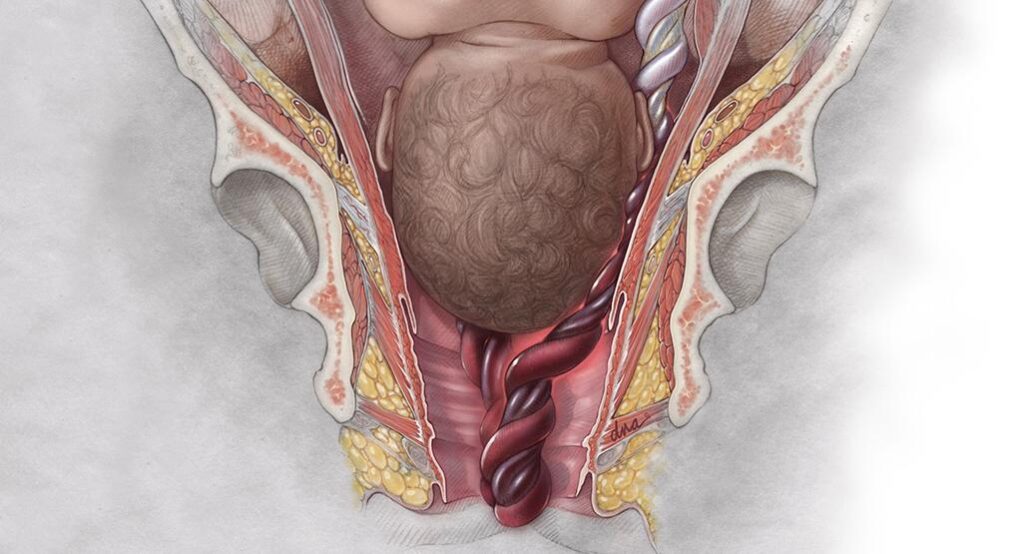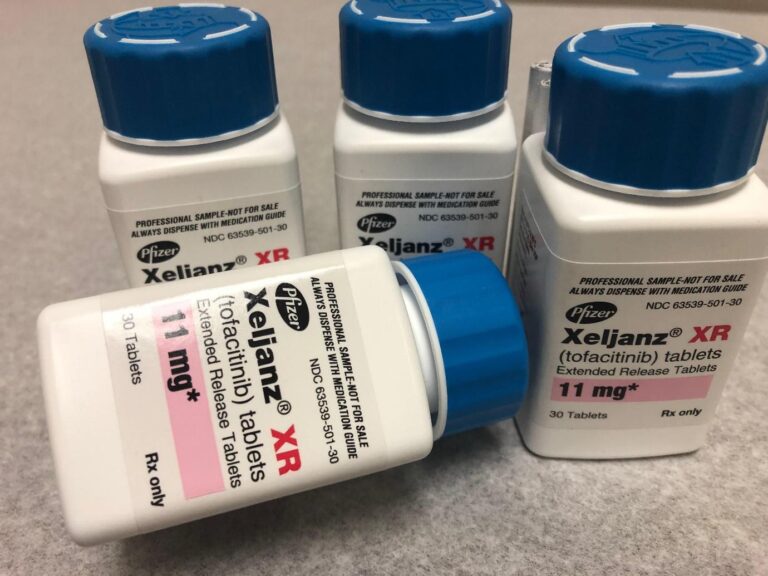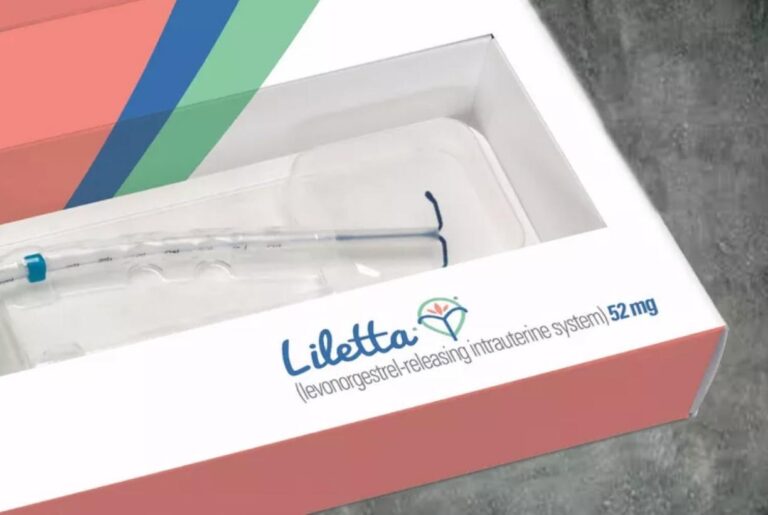When a woman gives birth normally, the baby will come out first through the cervix and vagina. In cases of umbilical cord prolapse (UCP), the prolapsed cord blocks the birth canal. Furthermore, it is also possible that the umbilical cord comes out first while the baby is still in the womb.
Since UCP is a birth injury, as a pregnant mother you have to be more careful. This condition causes the baby to suffer brain damage or even death. If you or your loved one is pregnant, keep abreast of the information by reading the entire discussion below. That will allow you to be able to take quick action if this happens to you.
What is Umbilical Cord Prolapse – UCP?
The introduction above explains a little about UCP. The umbilical cord is a tube that supplies the baby’s oxygen and nutritional needs while in the womb.
If the umbilical cord prolapses and blocks the fetus’s path or even exits the uterus before the baby, it can cause the baby to lack oxygen. The baby’s health and safety will be threatened if this condition does not receive immediate medical attention.
Cases of umbilical cord collapse before the baby is born are rare because the ratio is around 1:300 in each birth. Additionally, quoting information from the Web MD page, UCP cases are also increasingly rare since research data shows a case ratio of 1:1000.
What Causes Prolapsed Cord?
The exact cause of UCP is still unknown. Yet, Amniotic fluid contributes to increasing the risk of UCP at birth. Nevertheless, this is not the only contributing factor. The Cleveland Clinic page shares some factors that frequently increase the risk of UCP at birth. Let’s take a peek!
- Breech position (the fetus is not in a head position);
- multiple pregnancies (twins, triplets, or more);
- the amniotic fluid ruptures during early pregnancy; and
- polyhydramnios (too much amniotic fluid in the uterus).
Why is UCP a Birth Injury?
Generally, during pregnancy, women will routinely check their pregnancy with a gynecologist or obstetrician. This routine examination is to determine the health of the fetus in the womb and the pregnant mother. In some cases, a gynecologist’s or obstetrician’s decision can actually increase the risk of UCP at birth.
Even though gynecologists have experience in handling pregnancy and childbirth, they can make mistakes that may cause fatal consequences. Examples of some fatal mistakes that gynecologists or obstetricians might make include:
- amnioinfusion;
- when the fetus has not yet entered the mother’s pelvis, the healthcare provider breaks the amniotic fluid prematurely;
- using a vacuum extraction or forceps;
- ripe service using a balloon catheter performed by a healthcare provider;
- intrauterine pressure catheter placement; And
- baby gets an internal scalp electrode.
Medical professionals, whether doctors or nurses, must be able to provide the best treatment if a prolapsed cord occurs at birth. Besides, they must relieve umbilical cord compression as quickly as possible in order to save the baby.
Other immediate actions that must be taken include restoring the baby’s heartbeat or performing a cesarean delivery. In the worst case, if medical professionals fail to handle UCP at birth, they could end up getting a birth injury lawsuit from the patient.
Complications in Infants Due to UCP
A prolapsed umbilical cord will usually be compressed which will cause the baby to lack oxygen. Therefore, births that occur with UCP must receive quick and appropriate treatment to prevent more severe complications. The common complications that occur due to UCP are as follows:
- hypoxia (lack of oxygen resulting in tissue levels inadequate to maintain homeostasis);
- permanent brain damage;
- cerebral palsy;
- birth asphyxia or HIE (hypoxic-ischemic encephalopathy); and
- stillbirth.
Can I File a Lawsuit for UCP Birth Injury?
If you can gather evidence that the medical professional treating your pregnancy failed to diagnose or treat the prolapsed cord, you can sue for medical malpractice. The reason is that gynecologists and other medical professionals are trained to handle and treat UCP cases which must be a race against time.
If their negligence causes harm to the baby’s health, permanent disability, or even death, of course, this problem can result in legal action. You can file this lawsuit before the medical restrictions law is passed.
Get to know Medical Malpractice Claims
Health service providers and all working professionals must provide good service and meet health standards. When healthcare providers or medical professionals ignore the health standards set by health departments, they potentially harm patients.
Those of you who experience adverse health due to deviant medical professionals can file a medical malpractice lawsuit. In cases of prolapsed cord, medical malpractice is dangerous not only to the mother giving birth but also the baby.
Furthermore, babies are the ones most at risk of injury, permanent disability, or even lethal consequence, which is death. What medical negligence and errors cause birth injuries? Find out some of the reasons that provoke the malpractice, as follows.
1. Service providers fail to analyze the risks of pregnancy complications, and labor and delivery complications.
2. Medical professionals failed to monitor the condition of the fetus and pregnant mother during pregnancy.
3. Lack of experience in performing medical procedures.
4. Fatigue due to long hours of work.
5. In emergencies, medical service providers fail to request emergency and specialist care.
6. Ignore the patient’s symptoms and complaints.
7. Medical professionals fail to review the patient’s medical history.
How Do Injury Lawyers Help with Prolapse Cord Cases?
If you already have strong evidence that you are a victim of medical malpractice when you experience UCP, you can ask for help from a lawyer to streamline your claim. An injury lawyer will investigate and review the events during labor to determine whether the UCP was the result of medical professional negligence.
Afterward, if it is proven that the service provider or medical professional was negligent in treating the patient, the lawyer will take the case to a judge and demand compensation. You may receive damage compensation for the following aspects:
- missing wages;
- distress;
- long-term medical care expenses; and
- psychological and medical treatment for families and kids.
Beware of Prolapse Cord Risk!
While the data and studies show that the risk ratio is low, you still need to be more aware of the cause that may trigger UCP and the chance of prolapse cord risk. You stand a right to consult your medical providers throughout the routine pregnancy examination to prevent this from happening.
Moreover, if you or your loved one experiences a birth injury due to medical malpractice, take legal action quickly so cases like this do not happen again. Along with that, taking a case to court also allows you to get compensation.



